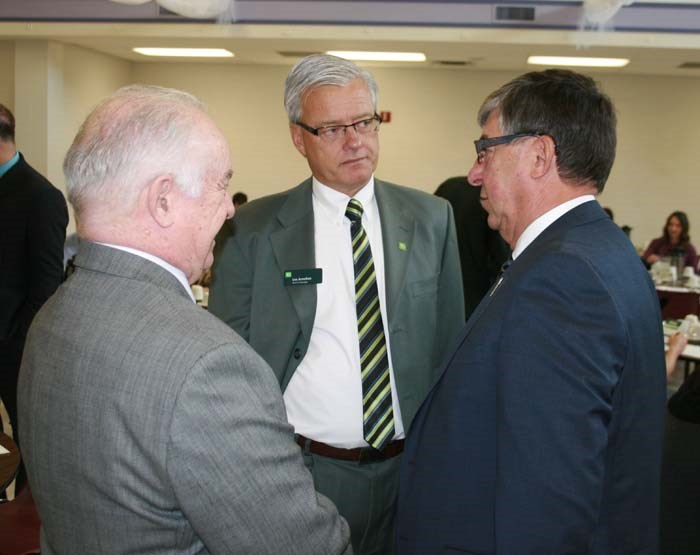Saskatchewan Finance Minister Ken Krawetz told those gathered for a Yorkton Chamber of Commerce luncheon Friday the recent provincial budget was a difficult one to formulate.
Krawetz said when he first sent out a request for preliminary budget ideas in June of 2014, oil was “still over $100 (a barrel) and it looked as though government revenues would grow by some 3.5 per cent, so departments could factor such growth into their plans.”
But that changed quickly as oil prices plunged.
“Then the October price of oil crashed,” said Krawetz, adding it has stayed low. “It’s down to less than $50 dollars.”
The result was a deficit for the government to budget through.
“We’re looking at a hole of about $700 million,” said Krawetz.
The loss in revenue is huge, said the Finance Minister.
“It’s easy to find $20 - $40 million maybe up to $80, but it’s not easy to find $700,” he said.
The good news was outside government, said Krawetrz, where unemployment in the province was low, retail sales strong, exports to non-U.S. destinations edging ahead of Alberta, and the population hitting 1,132,640, the highest in history.
“On the economy side things are humming,” he said.
Krawetz said the government did not want to jeopardize that strength in creating a budget. He added in their seven years in power it has been a focus to lower taxes “so you as taxpayers have money in your pockets.”
Still there was $700 million to find, and Krawetz said they looked at every program.
As an example the government thought about adding one mill to school property tax which they now set for the province. Such an increase would have saved the province $110 million, but Krawetz said they chose to leave that money in people’s pockets.
The gasoline tax in Saskatchewan has been 15-cents per litre since 1992, and Krawetz said there was discussion around raising it by three, four, or even five cents. A three-cent increase would have generated $105 million in additional provincial revenue.
Then there was the revenue sharing formula with municipalities, which has been one per cent of the provincial sales tax. Dropping it to three-quarters of one per cent was yet another avenue considered, said Krawetz.
“But right near the very end we said we’re not going to do that,” he said.
Krawetz said while everything was discussed, they chose to keep programs intact which made the best sense in terms of people having money to keep the economy rolling.
So instead, Krawetz said they looked at other avenues, fine tuning some programs, such as setting a higher threshold for the Senior’s Drug Plan, and expending the timeframe over which potash companies receive their tax credit on investment, and moved forward with a budget which remained balanced without going to taxpayers in a major way.



